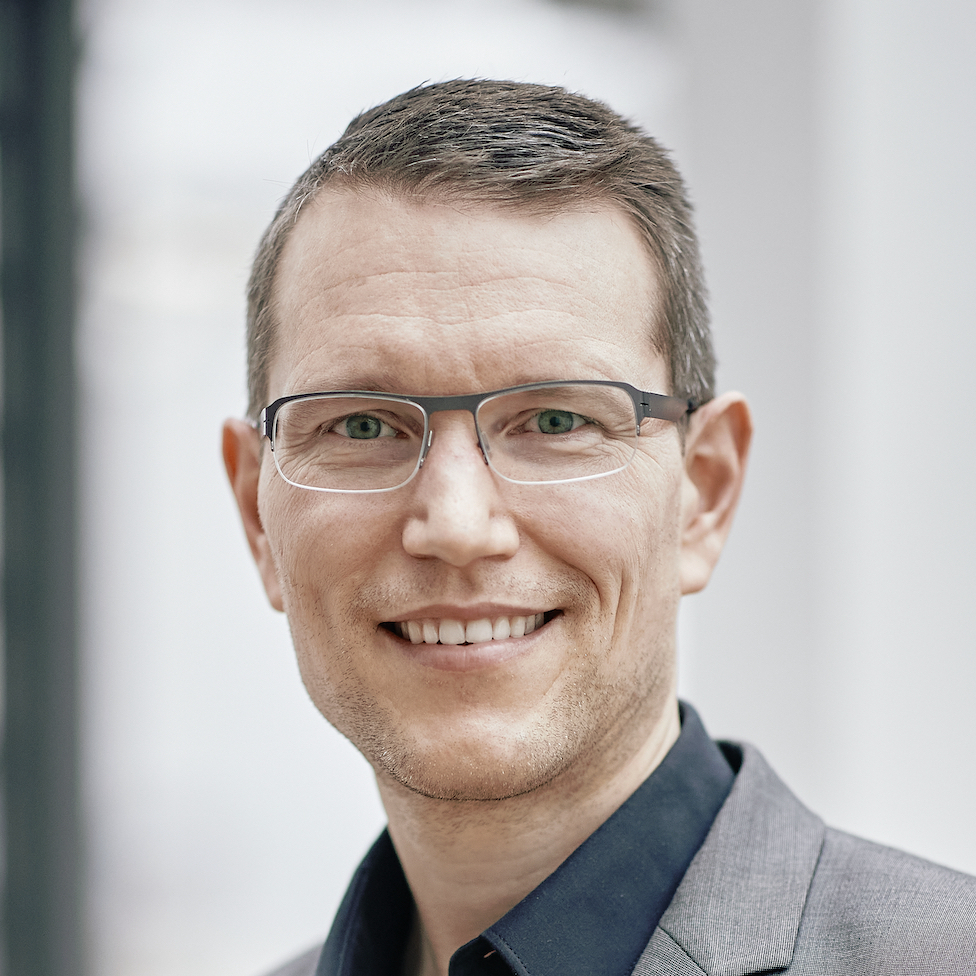Das Klinikum

Univ.-Prof. Dr. med. Christian Schürch, MD, PhD
Bereichsleitender Oberarzt
W3-Professur für Advanced Tissue Imaging und Digitale Pathologie
Kontakt
Telefonnummer: Sekretariat: 07071 29-80201
Telefonnummer: Fax: 07071 29-2991
E-Mail-Adresse: christian.schuerch@med.uni-tuebingen.de
Klinik / Institut / Zentrum
Klinische Schwerpunkte
- Hämatopathologie
- Gastrointestinale Pathologie
- Uropathologie
- Gynäkopathologie
- Digitale Pathologie
Wissenschaftliche Tätigkeit
- Räumliche Biologie, räumliche Proteomik und hochdimensionales Gewebe-Imaging mittels CODEX und Vectra, räumliche Transkriptomik mittels MERFISH und StereoSEQ
- Erforschung prädiktiver Gewebe-Marker für Immuntherapien im Tumor-Microenvironment
- Arbeitsgruppe Schürch / Schürch Lab
- European Society for Spatial Biology e.V. (ESSB)
Aktuelle Forschungsvorhaben / Drittmittelprojekte
ERC-Grant
-
Drivers and Brakes of CAR T Cell Efficacy Determined by the Tumor Immune Microenvironment (CAR-TIME)
ERC Starting Grant
Cancer immunotherapies with chimeric antigen receptor (CAR) T cells have shown dramatic clinical efficacy in patients with B cell neoplasms. Thus, their clinical use is expected to increase considerably in the near future. However, for poorly understood reasons, not all patients with lymphoma benefit from these expensive therapies. The ability to stratify patients into probable responders vs. non-responders prior to immunotherapy will improve treatment efficacy, limit patient exposure to adverse effects, and mitigate the significant economic costs associated with these therapies.
We and others have previously demonstrated that effective antitumoral immunity requires complex, spatially coordinated interactions between different cellular elements within the tumor immune microenvironment (TIME). There is evidence that patient response to immunotherapy is attributed to specific characteristics of the TIME, such as the composition, spatial arrangement, and activation states of immune cell types in it. Therefore, a better understanding of the TIME, and of how immunotherapies come into effect in live, intact human tissues, is critical for the selection of successful immunotherapies for our patients.
The overarching aim of the CAR-TIME project is to explore and visualize the cellular and molecular mechanisms of CAR T cell efficacy in lymphoma, determined by CAR T cell interactions with the TIME. This shall be achieved by creating a high-dimensional map of the TIME of diffuse large B cell lymphoma, performing live tissue cultures treated with immunotherapies, and establishing a novel live cell microscopy platform to interrogate intact human lymphoma tissue treated with CAR T cells. Drug perturbations, multidimensional imaging technologies, RNA sequencing and integrative bioinformatics analysis will illuminate mechanisms of therapy response vs. resistance, reveal novel predictive biomarkers, and inform future combination immunotherapy strategies to improve patient outcomes.Laufzeit: 2024-2028
Ausbildung & beruflicher Werdegang
-
2024 -Vizepräsident und Schatzmeister, European Society for Spatial Biology e.V. (ESSB)
-
2023 -2025Weiterbildung Master of Health Business Administration, FAU Erlangen-Nürnberg
-
2021 -W3 Professor und Bereichsleitender Oberarzt, Institut für Pathologie, Universitätsklinikum Tübingen
-
2020 - 2021W3 Professurvertreter und Oberarzt, Institut für Pathologie, Universitätsklinikum Tübingen
-
2018Habilitation im Fach Pathologie, Universität Bern
-
2017 - 2020Postdoc, Baxter Laboratory, Department of Microbiology & Immunology, Stanford University
-
2017 - 2017Stv. Oberarzt, Institut für Pathologie, Universität Bern
-
2017Schweizerischer Facharzttitel für Pathologie
-
2016 - 2017Assistenzarzt, Institut für Pathologie, Universität Bern
-
2015 - 2016Assistenzarzt, Institut für Pathologie, Universitätsklinikum Tübingen
-
2012 - 2015Assistenzarzt, Institut für Pathologie, Universität Bern
-
2010 - 2012Zertifikat (CAS) Hochschuldidaktik, Universität Bern
-
2008 - 2011Promotion MD, PhD, Departement für Biomedizinische Forschung, Universität Bern
-
2004 - 2007Promotion Dr. med., Institut für Infektionskrankheiten, Universität Bern
-
2001 - 2007Medizinstudium, Universität Bern
Preise & Auszeichnungen
- 2024 Science2Start Ideenwettbewerb, 1. Preis, BioRegioSTERN
- 2023 ERC Starting Grant
- 2022 Forschungspreis der Walter Schulz Stiftung
- 2021 Württembergischer Krebspreis
- 2021 Rudolf-Virchow-Preis der Deutschen Gesellschaft für Pathologie
- 2021 Irving Scholar
- 2021 US & Canadian Academy of Pathology Benjamin Castleman Award
- 2020 Swiss National Science Foundation Eccellenza Award
- 2018 American Society of Hematology Abstract Achievement Award
- 2018 Swiss National Science Foundation Postdoc Mobility Award
- 2017 Pfizer Research Award
- 2016 Swiss National Science Foundation Advanced Postdoc Mobility Award
- 2015 Charles Rodolphe Brupbacher Young Investigator Award
- 2015 Posterpreis der Schweizerischen Gesellschaft für Pathologie
- 2014 US & Canadian Academy of Pathology Stowell-Orbison Award Certificate of Merit
- 2014 Stipendium Klinische Medizin Plus der Prof. Dr. Max Cloëtta Stiftung
- 2014 Posterpreis der Schweizerischen Gesellschaft für Pathologie
- 2013 Hemmi-Preis für Klinische Forschung
- 2013 European Society of Pathology 3rd Oral Presentation Prize
- 2013 Bern Immunology Club Best Paper Award
- 2013 University of Bern Best PhD Thesis Award
- 2010 Stipendium der Gertrud-Hagmann-Stiftung für Malignomforschung
- 2007 Schweizerisches Nationales MD-PhD Stipendium
Publikationen
Veranstaltungen / Vorlesungen
- Pathologie der Zelle
- Herz-Kreislaufpathologie
- Advanced Oncology
